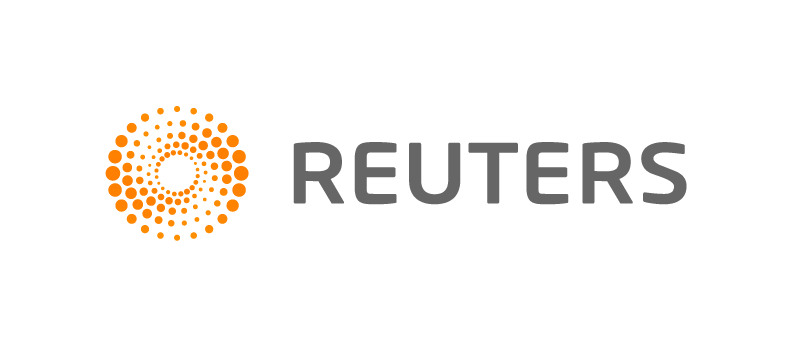World Bank: Venezuela Lacked Good Faith in ConocoPhillips Seizure

HOUSTON/CARACAS, Sept 4 (Reuters) - Venezuela failed to act in good faith or properly compensate ConocoPhillips for three big oil assets the country expropriated in 2007, a World Bank arbitration panel said on Wednesday.
The partial ruling, which limited the scope of the company's claims by excluding future tax credits, did not determine how much money Venezuela must pay the U.S.-based company.
The company's projects were taken over during the leftwing administration of deceased former President Hugo Chavez, who led a wave of nationalizations that included the oil, electricity and steel industries.
"The respondent breached its obligation to negotiate in good faith for compensation for its taking of the ConocoPhillips assets in the three projects on the basis of market value," said the ruling by the International Centre for Settlement of Investment Disputes (ICSID).
The company claimed victory, but a final ruling on damages could take one or two more years, according to experts.
"This ruling sends a clear message that countries cannot expropriate their investments without fair compensation," said Janet Langford Kelly, a senior vice president of the company.
ConocoPhillips initially asked Venezuela for $30 billion in compensation for its stakes in the Hamaca and Petrozuata heavy crude upgraders and a separate offshore project called Corocoro, but Venezuela offered no more than $2 billion.
The core of the dispute, the biggest against Venezuela before an arbitration body, is over how to place a value on the assets. ConocoPhillips demands payment based on market prices, while Venezuela has offered to pay according to book value, which would be much lower.
In 2007, ConocoPhillips took an after-tax charge against its earnings of $4.5 billion related to its properties in Venezuela. At the time, the Houston-based company said it believed the assets were worth much more, but that was the amount allowed under U.S. accounting rules.
Wells Fargo said that the initial write-down value is "a good place to start" when determining what the payment should be, even though it is significantly less that ConocoPhillips's estimate.
ConocoPhillips shares were up 1.4 percent in afternoon trade at $67.73.
Negotiations and Fights
Venezuelan Petroleum Minister Rafael Ramirez harshly criticized the panel and ConocoPhillips.
"We reject the tribunal's affirmation that we did not negotiate in good faith. We reached deals with other companies, such as Chevron," he said.
Several major foreign oil companies, including Chevron Corp , reached agreements with the Chavez government to pay higher taxes and royalties, and give up majority stakes in projects while hanging onto minority ones.
ExxonMobil Corp and ConocoPhillips did not reach accords with Venezuela and eventually pressed their claims in arbitration.
Venezuela has more than 20 arbitration cases pending at ICSID and other courts stemming from Chavez's nationalizations. The country pulled out of the ICSID in 2012, but will still be subject to cases submitted beforehand.
Analysts said the ruling could bode well for ExxonMobil's case at ICSID.
Exxon received $908 million from state-owned Petroleos de Venezuela (PDVSA) last year after a separate ruling by the International Chamber of Commerce over the same claim.
Ramirez said he would ask for a new chance to show the panel that the country acted in good faith.
"Let's see if the court respects what PDVSA and Conoco signed when they became partners. They agreed at that moment that any indemnification would have a top of $27 per barrel, not 100 dollars that is the current crude price. They wrote it, they signed it, the court has it," the minister said in Caracas.
WHAT DO YOU THINK?
Generated by readers, the comments included herein do not reflect the views and opinions of Rigzone. All comments are subject to editorial review. Off-topic, inappropriate or insulting comments will be removed.
- Weatherford CEO's Rebound Plan Relies On Getting Smaller
- Iran Says Oil Market Is Too Tight For US Zero Exports Target
- China's Squeezed 'Teapots' Eye Petchem Path To Riches
- Baker Hughes: US Drillers Add Oil Rigs For Second Week In Three
- Venezuela Hands China More Oil Presence, But No Mention Of New Funds
- USA Regional Banks Dramatically Step Up Loans to Oil and Gas
- Oil Markets Were Already Positioned for Iran Attack
- An Already Bad Situation in the Red Sea Just Got Worse
- Valeura Makes Three Oil Discoveries Offshore Thailand
- EU Offers $900MM in Funding for Energy Infrastructure Projects
- Chile's ENAP Says Working on Decarbonization Plan
- Germany to Provide $2.3B Aid for Decarbonization of Industrial Sectors
- Mexico Presidential Frontrunner Plans to Spend Billions on RE, Gas Power
- Macquarie Strategists Warn of Large Oil Price Correction
- JPMorgan CEO Says LNG Projects Delayed Mainly for Political Reasons
- USA, Venezuela Secretly Meet in Mexico as Oil Sanctions Deadline Nears
- EIA Ups Brent Oil Price Forecast for 2024 and 2025
- Petrobras Discovers Oil in Potiguar Basin
- EIR Says Oil Demand Will Not Peak Before 2030
- Biden Plans Sweeping Effort to Block Arctic Oil Drilling
- Pantheon Upgrades Kodiak Estimates to 1.2 Billion Barrels
- Dryad Flags Red Sea 'Electronic Warfare' Alert
- Russian Oil Is Once Again Trading Far Above the G-7 Price Cap Everywhere
- Oil and Gas Executives Predict WTI Oil Price
- New China Climate Chief Says Fossil Fuels Must Keep a Role
- Chinese Mega Company Makes Another Major Oilfield Discovery
- Oil and Gas Execs Reveal Where They See Henry Hub Price Heading
- Equinor Makes Discovery in North Sea
- ExxonMobil Racks Up Discoveries in Guyana Block Eyed by Chevron
- Macquarie Strategists Warn of Large Oil Price Correction
- DOI Announces Proposal for Second GOM Offshore Wind Auction
- Standard Chartered Reiterates $94 Brent Call
- Chevron, Hess Confident Embattled Merger Will Close Mid-2024


